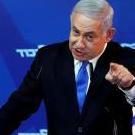Russia's glorious past and humble present- contribution to world science

By
RoadRomeo
in Discussions
-
-
-
-
Tell a friend
-
-
Most viewed in last 30 days
-

-

-

-

-

-

-
.thumb.jpg.abf7d08f99d33f7507f9f0e982085cc3.jpg)
-

-
 234
234psycopk · Started
-

-

-

-

-
.thumb.jpg.ce42bb16ec102475a78c2087ce269c7d.jpg)
-

-

-

-

-

-

-
-

Recommended Posts
Join the conversation
You can post now and register later. If you have an account, sign in now to post with your account.